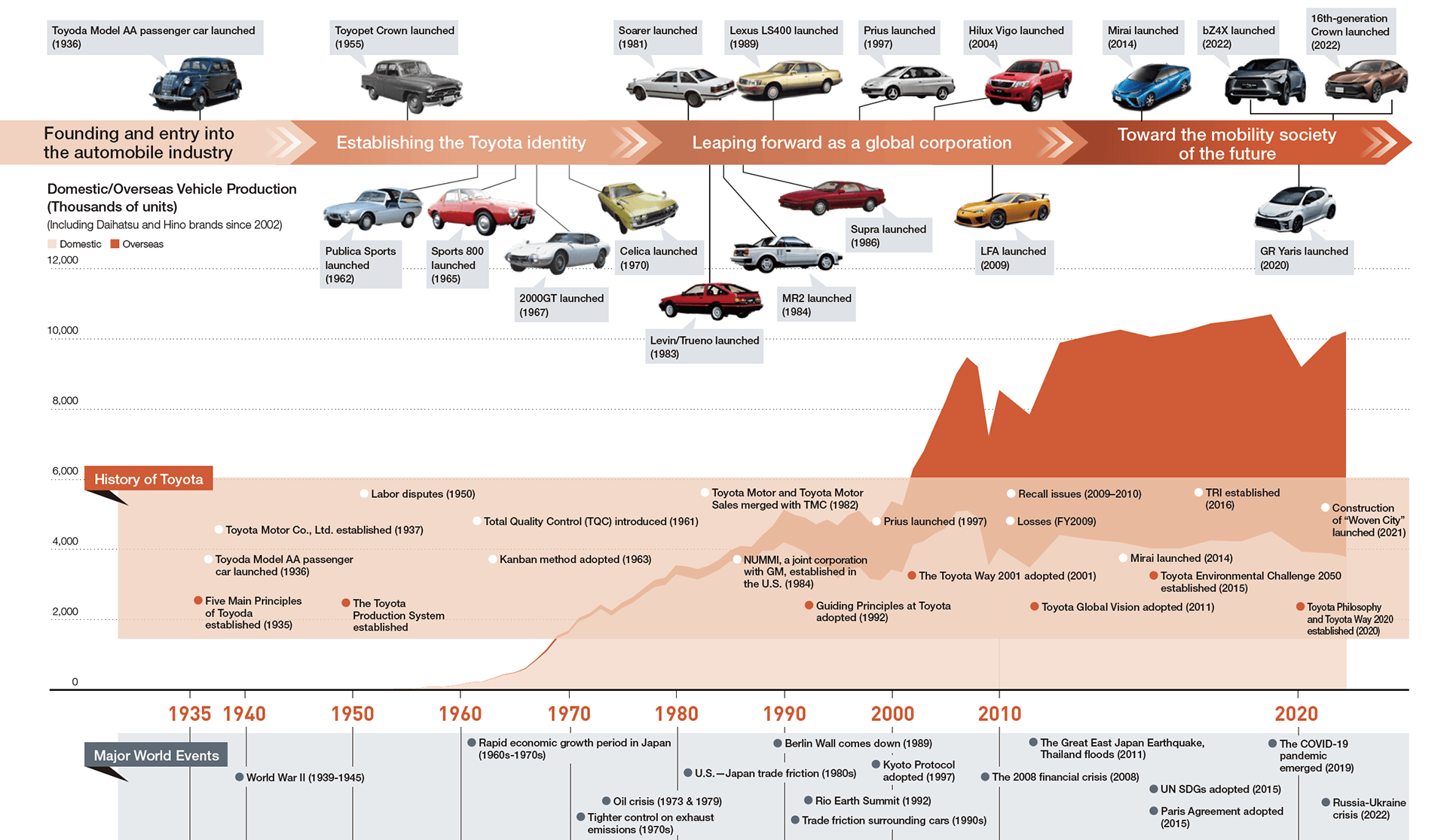Exploring Toyota History
What does it mean?
Toyota is a well-known Japanese multinational automotive manufacturer that has been in operation for over 80 years. The company has built a reputation for producing high-quality, reliable vehicles that are known for their longevity and durability. Toyota has become one of the largest automakers in the world, with a wide range of vehicles that cater to different markets and customer needs.
How?
Toyota was founded in 1937 by Kiichiro Toyoda, the son of Sakichi Toyoda, who was the founder of the Toyoda Automatic Loom Works. The company started off as a division of Toyoda Automatic Loom Works, but quickly grew into its own entity focused on automobile manufacturing. Toyota’s first passenger car, the Model AA, was introduced in 1936, setting the stage for the company’s future success in the automotive industry.
Over the years, Toyota has expanded its product line to include sedans, trucks, SUVs, and hybrid vehicles. The company has also made a name for itself in the field of innovation, with the introduction of new technologies such as the Prius hybrid and the Mirai fuel cell vehicle. Toyota has also focused on sustainability and environmental responsibility, with initiatives such as the Toyota Environmental Challenge 2050, which aims to reduce the company’s carbon footprint and promote eco-friendly practices.
What is known?

Image Source: global.toyota
Toyota has a long and storied history that has seen the company overcome many challenges and achieve great success. The company has weathered economic downturns, natural disasters, and fierce competition to emerge as a leader in the automotive industry. Toyota’s commitment to quality, innovation, and customer satisfaction has helped it build a loyal customer base and maintain its position as one of the top automakers in the world.
One of the key factors that has contributed to Toyota’s success is its Toyota Production System (TPS), which is based on the principles of continuous improvement and waste reduction. The TPS has enabled Toyota to streamline its manufacturing processes, reduce costs, and improve product quality. This approach has been emulated by other companies around the world and has helped Toyota maintain its competitive edge in the global marketplace.
Solution
As Toyota looks to the future, the company continues to focus on innovation, sustainability, and customer satisfaction. Toyota is investing in new technologies such as autonomous driving, electric vehicles, and connected cars to meet the evolving needs of consumers and stay ahead of the competition. The company is also working to reduce its environmental impact through initiatives such as the Toyota Environmental Challenge 2050, which aims to achieve zero emissions and zero carbon footprint by the year 2050.

Image Source: buschtaxi.org
Toyota’s commitment to quality and reliability remains unwavering, as the company strives to deliver vehicles that exceed customer expectations and stand the test of time. With a rich history of innovation and success, Toyota is poised to continue leading the way in the automotive industry for years to come.
Conclusion
In conclusion, Toyota’s history is a testament to the company’s resilience, innovation, and commitment to excellence. From humble beginnings as a division of a loom manufacturer to becoming one of the largest automakers in the world, Toyota has achieved remarkable success through its focus on quality, efficiency, and customer satisfaction. As Toyota looks to the future, the company is poised to continue its legacy of innovation and leadership in the automotive industry.
FAQs
1. What is Toyota known for?
Toyota is known for producing high-quality, reliable vehicles that are durable and long-lasting. The company has built a reputation for innovation, sustainability, and customer satisfaction.
2. When was Toyota founded?
Toyota was founded in 1937 by Kiichiro Toyoda, the son of Sakichi Toyoda, the founder of the Toyoda Automatic Loom Works.
3. What is the Toyota Production System?
The Toyota Production System is a manufacturing methodology based on continuous improvement and waste reduction. It has helped Toyota streamline its manufacturing processes and improve product quality.
4. What is the Toyota Environmental Challenge 2050?
The Toyota Environmental Challenge 2050 is an initiative aimed at reducing Toyota’s carbon footprint and promoting eco-friendly practices. The company aims to achieve zero emissions and zero carbon footprint by the year 2050.
5. What does the future hold for Toyota?
Toyota is investing in new technologies such as autonomous driving, electric vehicles, and connected cars to meet the evolving needs of consumers and stay ahead of the competition. The company is committed to innovation, sustainability, and customer satisfaction as it looks to the future.
Toyota History